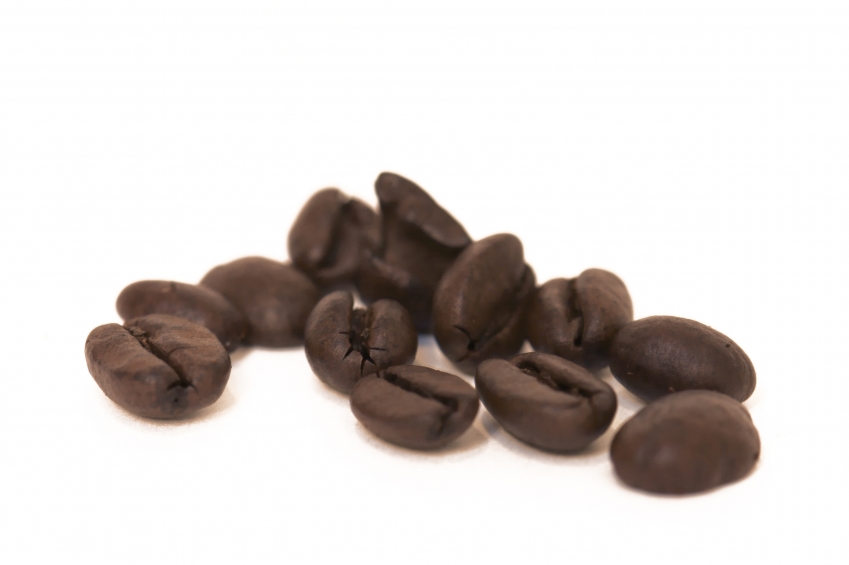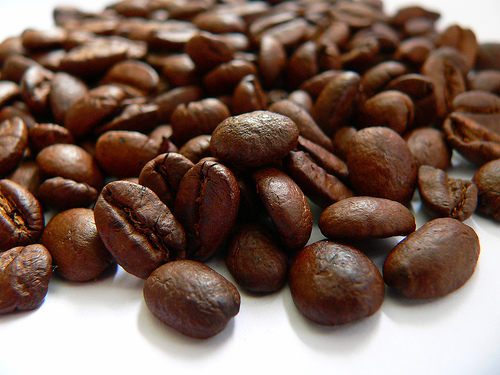Caffeine intoxication
 Cas No. [58-08-2]
Main symptoms of caffeine intoxication.
An acute overdose of caffeine, usually in excess of about 300
milligrams, dependent on body weight and level of caffeine
tolerance, can result in a state of central nervous system
over-stimulation called caffeine intoxication (DSM-IV 305.90), or
colloquially the "caffeine jitters". The symptoms of caffeine
intoxication are not unlike overdoses of other stimulants. It may
include restlessness, nervousness, excitement, insomnia, flushing of
the face, increased urination, gastrointestinal disturbance, muscle
twitching, a rambling flow of thought and speech, irritability,
irregular or rapid heart beat, and psychomotor agitation. In cases
of much larger overdoses, mania, depression, lapses in judgment,
disorientation, disinhibition, delusions, hallucinations, and
psychosis may occur, and rhabdomyolysis (breakdown of skeletal
muscle tissue) can be provoked.[89][90]
In cases of extreme overdose, death can result. The median lethal
dose (LD50) given orally, is 192 milligrams per kilogram in rats.[2]
The LD50 of caffeine in humans is dependent on weight and individual
sensitivity and estimated to be about 150 to 200 milligrams per
kilogram of body mass, roughly 80 to 100 cups of coffee for an
average adult taken within a limited time frame that is dependent on
half-life. Though achieving lethal dose with caffeine would be
exceptionally difficult with regular coffee, there have been
reported deaths from overdosing on caffeine pills, with serious
symptoms of overdose requiring hospitalization occurring from as
little as 2 grams of caffeine. An exception to this would be taking
a drug such as fluvoxamine which blocks the liver enzyme responsible
for the metabolism of caffeine, thus increasing the central effects
and blood concentrations of caffeine dramatically at 5-fold. It is
not contraindicated, but highly advisable to minimize the intake of
caffeinated beverages, as drinking one cup of coffee will have the
same effect as drinking five under normal conditions.Death typically
occurs due to ventricular fibrillation brought about by effects of
caffeine on the cardiovascular system.
Treatment of severe caffeine intoxication is generally supportive,
providing treatment of the immediate symptoms, but if the patient
has very high serum levels of caffeine then peritoneal dialysis,
hemodialysis, or hemofiltration may be required.

>>
New Product
Introduced :
Oseltamivir
Phosphate,
Phenyl Propanolamine,
Phenylephrine,
Etafedrine

|

 We all know that one of the most
powerful chemical compounds found in both coffee and tea is
caffeine. Has caffeine become an important part of your daily life?
Did you know We all know that one of the most
powerful chemical compounds found in both coffee and tea is
caffeine. Has caffeine become an important part of your daily life?
Did you know
Article : What Is Caffeine?
 Caffeine is a drug that is naturally
produced in the leaves and seeds of many plants. It's also produced
artificially and added to certain foods. Caffeine is defined as a
drug because it stimulates the central nervous system, causing
increased alertness. Caffeine gives most people a temporary energy
boost and elevates mood. Caffeine is a drug that is naturally
produced in the leaves and seeds of many plants. It's also produced
artificially and added to certain foods. Caffeine is defined as a
drug because it stimulates the central nervous system, causing
increased alertness. Caffeine gives most people a temporary energy
boost and elevates mood.
Caffeine is in tea, coffee, chocolate, many soft drinks, and pain
relievers and other over-the-counter medications. In its natural
form, caffeine tastes very bitter. But most caffeinated drinks have
gone through enough processing to camouflage the bitter taste.
Teens usually get most of their caffeine from soft drinks and energy
drinks. (In addition to caffeine, these also can have added sugar
and artificial flavors.) Caffeine is not stored in the body, but you
may feel its effects for up to 6 hours.
![Caffeine Cas No. [58-08-2]](caffeine/CAFFEINE%20LOGO%20SMALL.bmp)
|


